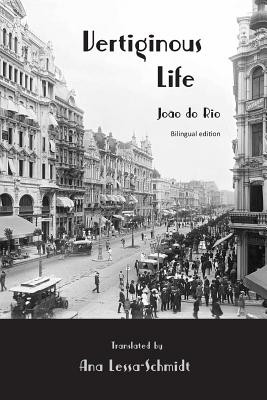
- We will send in 10–14 business days.
- Publisher: New London Librarium
- Year: 2017
- Pages: 476
- ISBN-10: 0998273082
- ISBN-13: 9780998273082
- Format: 15.2 x 22.9 x 2.7 cm, softcover
- Language: English
- SAVE -10% with code: EXTRA
Vertiginous Life (e-book) (used book) | bookbook.eu
Reviews
Description
In 1911, Rio de Janeiro was a venerable city in a new republic just a generation old. The people of Rio felt as new as the new century. A new culture of immigration and education blossomed. New technologies of machinery-Automobiles! Airplanes!-advanced with blinding speed. Feminism! Advertisement! Democracy! Global travel! New journalism! Tea, slander, migrant camps, uppity servants! Life in Rio de Janeiro was dizzying. Vertiginous. In the giddy swirl of modernity, literary journalist João do Rio aimed his critical eye at a great city and society in transformation. His collection of articles, Vida Vertiginosa, is presented here for the first time in the English language. It ranks with his Religions in Rio as a classic of Brazilian nonfiction. João do Rio was a journalist way ahead of his time. A man of the streets, the people, the bars and restaurants, sui generis, dapper and openly gay, he approached reportage with a style all his own. He saw what others did not see, and he wrote about it with inimitable linguistic flare.
EXTRA 10 % discount with code: EXTRA
The promotion ends in 20d.21:51:07
The discount code is valid when purchasing from 10 €. Discounts do not stack.
- Publisher: New London Librarium
- Year: 2017
- Pages: 476
- ISBN-10: 0998273082
- ISBN-13: 9780998273082
- Format: 15.2 x 22.9 x 2.7 cm, softcover
- Language: English English
In 1911, Rio de Janeiro was a venerable city in a new republic just a generation old. The people of Rio felt as new as the new century. A new culture of immigration and education blossomed. New technologies of machinery-Automobiles! Airplanes!-advanced with blinding speed. Feminism! Advertisement! Democracy! Global travel! New journalism! Tea, slander, migrant camps, uppity servants! Life in Rio de Janeiro was dizzying. Vertiginous. In the giddy swirl of modernity, literary journalist João do Rio aimed his critical eye at a great city and society in transformation. His collection of articles, Vida Vertiginosa, is presented here for the first time in the English language. It ranks with his Religions in Rio as a classic of Brazilian nonfiction. João do Rio was a journalist way ahead of his time. A man of the streets, the people, the bars and restaurants, sui generis, dapper and openly gay, he approached reportage with a style all his own. He saw what others did not see, and he wrote about it with inimitable linguistic flare.


Reviews